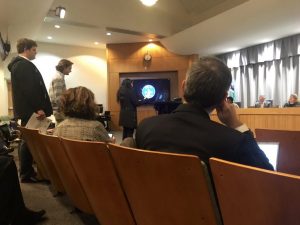Using a racial equity toolkit to inform program, service, and policy-making
We often talk about using a racial equity lens when planning programs and services or setting policy. But what does this actually mean? How do we operationalize this lens? Experts in advancing racial equity in government from the Government Alliance for Race and Equity (GARE) created a racial equity toolkit (RET) that helps answer this question. The RET consists of 6 steps:
Step 1: What is the issue?Describe the policy, program, practice, or budget decision and the intended results and outcomes both for the organization and the community.
Step 2: Data. Determine what data is needed to determine impacts on the impacted geographic area. What are the racial demographics of those communities? What does the data tell you about existing racial inequities? What does it tell you about root causes or factors contributing to these inequities? What data is missing? How can you fill those gaps?
Step 3: Community Engagement. How have communities been engaged? How can that engagement be expanded? How do you know it is true engagement and not just outreach to inform? Who are the most affected community members? How have they been involved in your proposal (policy, program, practice, etc.)? How has the knowledge gained from the engagement process been incorporated?
Step 4: Strategies to Advance Racial Equity. Given what you have learned from your data and community engagement work, how will the proposal increase or decrease racial equity? Who will benefit or be burdened? What are unintended outcomes? How might those be ameliorated? How can you strengthen community partnerships to maximize impact? How will you partner for long-term change?
Step 5: Implementation Plan.Describe your plan for implementation. Is it realistic, adequately funded, including with staff?
Step 6: Accountability, Communication, Evaluation. How will you document and evaluate impacts? Are you achieving those you anticipated? Are you making a community impact? What are the communication strategies that will advance racial equity? How will you insure a feedback loop? How will you center those most impacted for the long-term?
Over the last two years students in our School of Social Work undergraduate experiential learning course on economic justice completed team RET projects to help our local governments think about how RETs might be implemented and what issues they might be useful for. Each year the elected officials from the boards of Carrboro, Chapel Hill, Hillsborough, and Orange County, North Carolina who serve on the Leadership Team of the Orange County Partnership to End Homelessness pitch a project currently under discussion with their boards. Student teams of 3-5 members then work with the elected official to complete these 6 steps and create a report for the boards and their staff. To complete the toolkit, the teams interviewed key stakeholders, reviewed reports and meeting summaries, and gathered and analyzed existing data. Over the last two years the teams have tackled issues including transit planning, historical zoning decisions, community engagement for comprehensive plan development, environmental justice issues surrounding coal ash, affordable housing and land use, and property redevelopment. In the fall of 2018 several of the student teams presented their findings at board meetings. One of these was covered by the local media. Another was developed into a blog post for the Race to Democracy website.
You can view several of these projects at the links below:
Link to Coal Ash Disposal Site Remediation Project
Link to Evaluating Chapel Hill Transit’s Short-Range Transit Plan
Link to Analysis of Previous Historic District Overlay
Link to Recommendations for the Community Input Stage of the Carrboro Comprehensive Plan
Link to Orange County Mobile Home Parks – Proposals from a Racial Equity Lens
Link to Chapel Hill Legion Road Property
Jurisdictions all over the country are using racial equity toolkits to guide their planning and decision-making across departments. Our Fall 2019 class will continue to work with our elected boards to produce RET reports. We are also hopeful that as the towns and county more fully develop their racial equity initiatives they will combine this key tool into their work. If you’d like more information please contact Dr. Allison De Marco at ademarco@unc.eduor call 919-843-9911.

